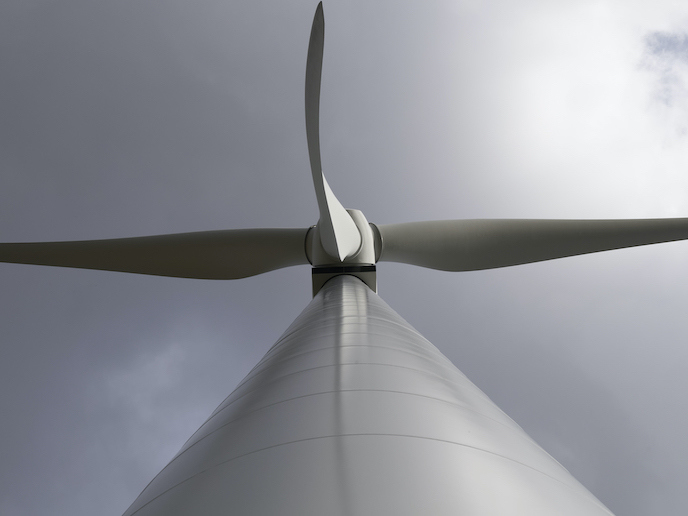A more efficient way of maintaining wind turbines
Wind power is a crucial ingredient in society’s transition to renewable energy. The problem, however, is that wind turbines are still terribly expensive to operate and maintain – representing up to one third of the cost of renewable energy. In fact, an unexpected fault on a critical component often results in the entire turbine being shut down. This could leave thousands of homes having to be powered by fossil fuels for up to several months. For the wind farm owner, it means lost revenue and very expensive repairs. The key to preventing these potentially debilitating breakdowns is early fault detection. Traditionally, this has been done via condition monitoring, a process that uses advanced sensor data to monitor the health of mechanical equipment. “The engineering experts involved in this process are like doctors for wind turbines, trying to identify the disease as early as possible and recommend the most effective cure,” says Allan Larsen, project coordinator of the EU-funded PAVIMON project. Unfortunately, condition monitoring is a manual process that doesn’t scale very well, which is why project host Vertikal AI has developed an artificial intelligence (AI) alternative. “Our AI technology is a game changer,” adds Larsen, CEO of Vertikal AI, a Danish company specialising in AI-based predictive maintenance solutions. “It leverages historical fault data, engineering expertise and mechanical data to produce earlier and more robust fault warnings than what can be done using traditional condition monitoring.” Now, thanks to the PAVIMON project, this AI technology is well on its way to being market-ready.
Need for AI technology is bigger than expected
During the project, Vertikal AI studied the feasibility of creating a profitable and scalable solution based on the company’s deep learning technology. Working with several large wind turbine owners, researchers asked such questions as: How clean and complete is the customer data landscape? What are the user pains? What barriers are there to transforming existing processes? How can the market and competitive landscape support a high-growth strategy? “Gathering data and insights required us to ask potential customers a lot of questions and dig deep into user pains and into processes,” explains Larsen. “This curiosity was very positively received, and the relationships we cultivated because of this are still helping us today.” According to Larsen, through these conversations the team discovered that the long-term need for its AI technology far exceeded their initial assumptions. “We realised that there is some very low-hanging fruit that we can immediately start resolving with a much simpler version of our product but that still plays into our long-term vision,” he adds.
Accelerating time to market
Although the project is now finished, Vertikal AI continues to advance its solution towards market readiness. “The PAVIMON project really validated our growth potential, and the insights we gathered now form the basis of our long-term growth strategy,” concludes Larsen. The company is currently making substantial investments in R&D and working to accelerate its time to market. In the next couple of years, Vertikal AI plans to work closely with its clients to finalise the product for market readiness. For this, they are seeking both private venture capital and, possibly, EIC Accelerator Pilot funding.
Keywords
PAVIMON, Vertikal AI, artificial intelligence, AI, deep learning, wind turbines, wind farm, predictive maintenance, wind power, renewable energy, condition monitoring



